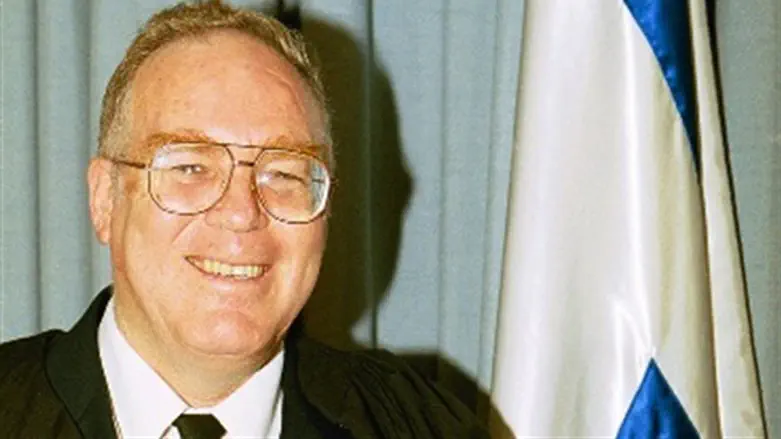
The Deputy Chief Justice of the Jerusalem District Court, Judge Moshe Drori, ruled that a 15-year-old youth who threw a Molotov cocktail and stones at Arab cars should not be convicted. The acts were done in the wake of the kidnapping-murder of three boys, Gilad Shaar, Naftali Frankel and Eyal Yifrach Hy'd(May G-d avenge their blood) on their way home from yeshiva..
The youth, a member of the parallel class of one of the boys, suffered severe trauma as a result of the kidnapping. He went to a demonstration, threw a Molotov cocktail on the road and threw stones, none of which hurt anyone.
At his interrogation the youth immediately admitted the acts attributed to him and was indicted in the District Court. The prosecution requested a jail sentence for him, but his attorney, Itamar Ben Gvir, claimed that this was a humanitarian case in which a young boy took the kidnapping of his friend very hard.
During the two years in which the case was being conducted, the youth was in confinement and did not break the conditions of his confinement, Ben Gvir said, also relying on a report by the juvenile service which recommended not convicting the youth.
The judge ruled that there is no question that the offenses were severe, but the youth in question had suffered a tragedy and the juvenile services recommendation could be implemented. The judge added that the youth came from a normative large family and would want, like his father, to serve in the IDF, which a conviction might prevent. Moreover, the Molotov cocktail and stones did not cause injury or damage and the youth had expressed his remorse over the incident.
.The judge stressed that although there is no sanction for a classmate of the murder victim to take the law into his own hands, one could not ignore the situation and the young man's emotional and social condition and the fact that today he is far removed from such behavior. Moreover the youth participated in army preparatory courses and the case would affect his army service and his desire to be a combat soldier and therefore the judge did not convict him and instead gave him community service.
Attorney Ben Gvir welcomed the "balanced, fair decision which takes into account the public interest of the State of Israel and enables a normative boy to serve his country."
